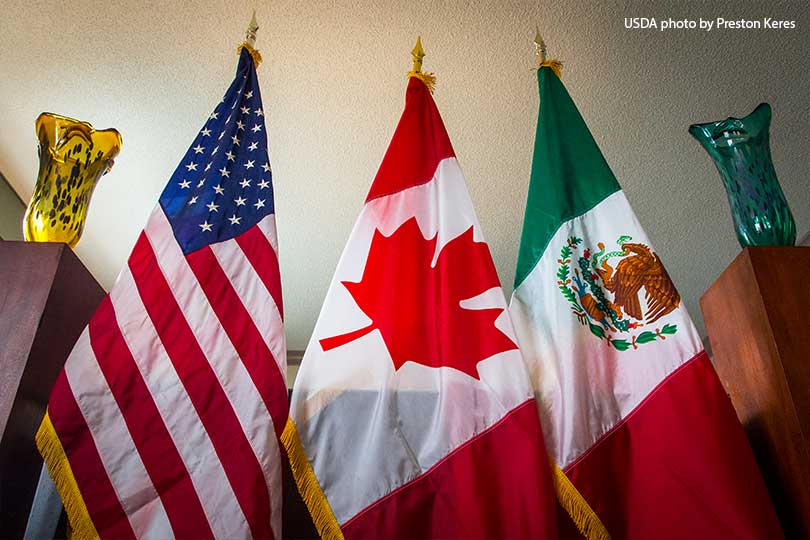The American Farm Bureau Federation (AFBF), the Canadian Federation of Agriculture (CFA) and Mexico’s Consejo Nacional Agropecuario (CNA) yesterday sent a joint letter to U.S., Canadian and Mexican government officials reiterating their calls that the North American Free Trade Agreement (NAFTA) renegotiations should aim to modernize the agreement, rather than dismantle it.
AFBF, CFA and CNA agree that agriculture represents one of NAFTA’s biggest success stories. Agricultural reciprocal trade between the three countries has grown exponentially since the agreement was implemented more than 20 years ago.
CFA President Ron Bonnett, strong in his support of the agreement, says that “NAFTA has boosted the incomes of millions of farmers and has facilitated the development of profitable export markets.”
In their discussions, the three presidents agreed on the need to build on the original agreement’s success by looking for ways to increase trade volumes.
“When it comes to overall positive results for North America’s farmers and ranchers, NAFTA has proved itself as a solid foundation for trade. Just as farmers have new tools and technology for food and fiber production, we believe that an updated NAFTA agreement can help the three nations become even stronger trading partners,” AFBF President Zippy Duvall said.
CNA President Bosco de la Vega, reflecting on the economic benefits of trade, said it is very clear “the NAFTA agreement has had a positive impact for the agricultural sector, including the exponential increase in trade flows between its partners. Currently, NAFTA markets are characterized by high level of complementarity, the possibility to face the challenge of food security in a better way, an open trade system with clear and fair rules. Taking these into account, we believe that today the NAFTA members have a big opportunity to even increase this positive outcome.”
All parties further commit to meeting with their governments to insist that NAFTA renegotiations should be built on the principle of “doing no harm.”
NAFTA discussions should seek:
- Increased and improved regulatory alignment.
- Improved flow of goods at border crossings.
- Further alignment of sanitary and phytosanitary measures using a science-based approach.
- Elimination of non-science based technical barriers to trade.
- Revisions that reflect technological advances since implementation such as digital trade, etc.
Agriculture in each NAFTA country would greatly suffer from disruptions to trading relationships developed over the last 23 years. Farmers have increased productivity and improved their competitiveness to address the rapidly growing demand worldwide for healthy and sustainable food products. Losses due to NAFTA changes would severely stunt this progress.
AFBF, CFA and CNA are committed to working with their respective administrations to ensure that a modernized NAFTA continues to be a success story for all farmers.

